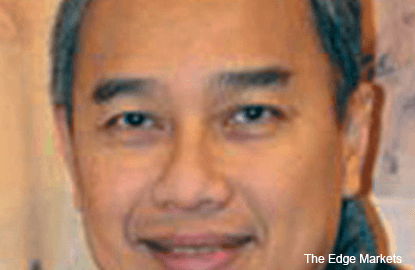
This article first appeared in The Edge Financial Daily, on December 9, 2015.

KUALA LUMPUR: Addressing the issue of sustainable palm oil will require a collective effort by the entire production chain in the industry as well as buyers and end-users, managing director of sustainability and strategic stakeholder engagement at Golden Agri-Resources Ltd (GAR) Agus Purnomo said.
Agus told The Edge Financial Daily in an interview that in order for the sustainable palm oil agenda to make progress, the dialogue on sustainability needs to be brought across various platforms, in order for it to have a shared definition. “Until we reach that level of common understanding, there will always be a differing of opinions as to what sustainability actually means,” he said, adding that the industry faces the challenge of engaging all stakeholders that are spread across the globe.
“The dialogue has to take place across the production chain, from the ones planting the trees, providing the licence, and all the way to the end-users. This is the hardest part,” Agus explained.
He added that while it is important for the palm oil sustainability issue be addressed, it should not be done so at the expense of local poverty alleviation programme. “We need to find the balance between the aspiration for development vis-à-vis aspiration for sustainability, and it can only be achieved through intensive discussion and dialogue among stakeholders.
“Our buyers are from many countries, and if their idea of sustainability is to not cut a single tree to open up our plantation, then we have a problem from our stakeholders nationally and domestically, because they [the latter] believe that it is their right to development,” Agus said. He noted that without a common ground of understanding, there will continue to be dissatisfaction in many corners of the sustainable palm oil industry.
Touching on the recent haze and forest burning incidents in Indonesia, Agus said that some smallholders resort to burning as they have no other means, and lack the proper equipment for plantation operations without resorting to forest burning. “The solution is in giving them the alternative to prepare their plantation area, which can be in the form of lending heavy equipment, so that they do not have to resort to the only means that they can afford, which is burning,” he added.
However, Agus said that each forest burning situation is different from one another, and specific solution is needed for a specific area. “If poverty is the main issue, then poverty alleviation is the answer. If it is crime, then law enforcement is the solution,” he explained.
Agus noted that GAR only had 0.5% of its oil palm plantations that caught fire for a few hours, and these were put out. It has not seen any more fire on its plantations since mid-October. “Over 60% of forest burnings happened outside of private concessions, and palm oil makes up about 20% of the incidents,” he said, explaining that there are misconceptions that the haze caused by forest burning was mainly due to land clearing for oil palm plantations.”
Agus added that Indonesia President Jokowi Widodo’s pledge to resolve the forest-burning issue in three years is a “bold commitment and not a short-sell”. On that note, he opined that it will remain a challenging task given that Indonesia has a decentralised government. “We will help the president to make it happen, but it is definitely the commitment of the government that will make the change,” Agus said.
GAR has enhanced its sustainability path via the group’s social and environmental policy, where it has committed not to convert areas with high biodiversity, conservation, and carbon stock value.
“We commit not to convert these areas into oil palm plantation. We are also not going to develop on peatlands at any depth. If there are peatlands, then we will leave it as it is, and will conserve it for as long as we hold the concession,” he added.